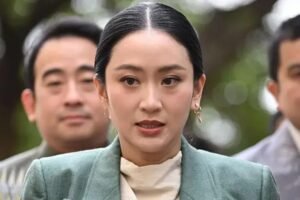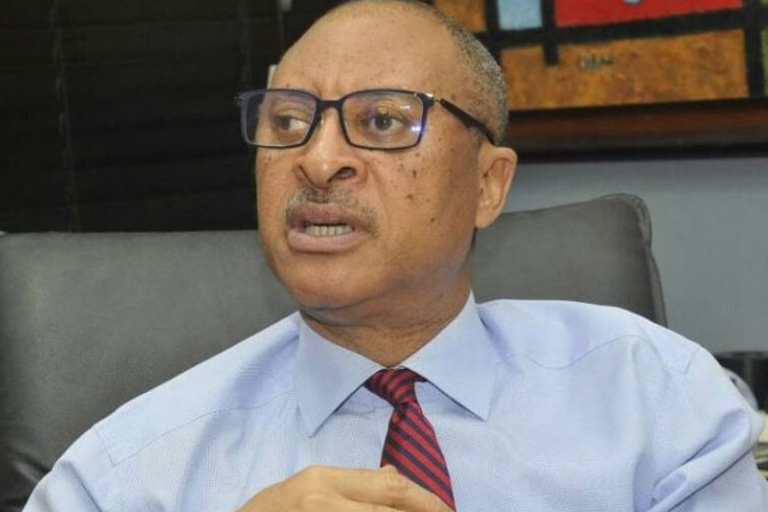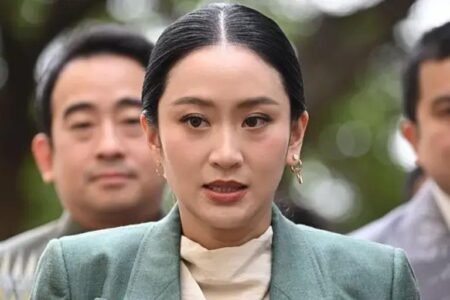Nigerian economist and political activist Professor Pat Utomi has announced the formation of a shadow government formed to serve as a credible opposition to President Bola Tinubu’s administration.
The initiative, which Utomi described as a “national emergency response”, was launched virtually on Monday under the banner of the Big Tent Coalition Shadow Government.
According to Utomi, the new government is made up of members from various Nigerian opposition parties and is tasked with regularly scrutinising government actions, identifying policy failures, and proposing alternative solutions in key areas such as the economy, education, healthcare, infrastructure, law and order, and constitutional reform.
He said, “The recent spate of defections to the All Progressives Congress provides further evidence that all is not well with democracy in Nigeria.
“The imperative is that if a genuine opposition does not courageously identify the performance failures of incumbents, offer options, and influence culture in a counter direction, it will be complicit in subverting the will of the people.”
The group will meet weekly to discuss public policy and propose reforms. Utomi stressed the need for focusing on honesty and openness, which he believes are severely lacking under the current administration.
“This shadow team must also address issues of ethics, transparency, and integrity, which continue to challenge this government at every turn,” he said.
“Nothing is more urgent than tackling the rising poverty across the country. Multinationals are shutting down, and millions are unemployed. Just two recent company exits illustrate how poorly thought-out policies have tanked the economy.”
He alleged that the government is using broad consensus among politicians as a cover for poor planning, saying, “Making propaganda of most leaders being in agreement on removing the petroleum subsidy was to cover up policy errors of how to remove it without further structural damage to the economy.”
In terms of security reform, Utomi argued for decentralised policing, believing that communities should be empowered to maintain their own security infrastructure through a tiered strategy that includes local forces, state police, and a Federal National Guard.
“Policing for me is a local function. We will travel further if we get the communities to have their own armed and well-trained police forces, which will be layered with state police and the Federal National Guard,” he said, adding that corruption and centralisation have contributed to the resistance against such reforms.
When asked about the makeup of the shadow cabinet, Utomi stated that it contains a diverse group of professionals and public figures from across the opposition. He stated that the team would serve not only as a think tank but also as a policy watchdog, providing realistic alternatives to government policies.
Dele Farotimi, a human rights lawyer, has been chosen to manage the Ombudsman and Good Governance position. Farotimi joins other important voices on the policy delivery team, including Oghene Momoh, Cheta Nwanze, Daniel Ikuonobe, Halima Ahmed, David Okonkwo, and Obi Ajuga.
The broader shadow cabinet includes a diverse lineup of experts and professionals: Dr Adefolusade Adebayo, Dr Peter Agadah, Dr Sadiq Gombe, Chibuzor Nwachukwu, Salvation Alibor, Bilkisu Magoro, Dr Victor Tubo, Charles Odibo, Dr Otive Igbuzor, Eunice Atuejide, Gbenga Ajayi, Dr Mani Ahmad, Peter Oyewole, and Dr Omano Edigheji.
Other members include Sidi Ali, Ibrahim Abdukarim, Adenike Oriola, Promise Adewusi, Prof. Ukachukwu Awuzie, Ambrose Obimma, Rwang Pam, Dr Kingsley Anedo, Prof. Auwal Aliyu, Dr Ghazali Ado, Nana Kazaure, Aisha Yusuf, Dr Charles Gilbert, and Olujimi Akiboh.











